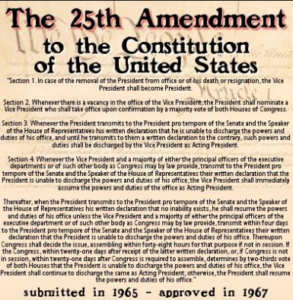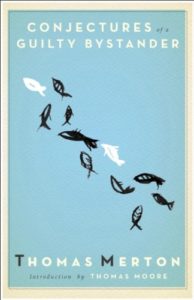September 29, 2020 
I recently wrote that the United States is not a democracy, but an autocracy in the making.
That calls for a fundamentally different kind of journalism. And who better to show us what this looks like than Jay Rosen, one of the sharpest critics of modern news.
In the run-up to the US elections in November, Jay answers an essential question: How should the media report on a democracy in crisis?
“There are things that journalists can – and should – be legitimately for: a citizens agenda; fighting authoritarianism and the subversion of democracy; an evidence-based political debate; and pro-participation.”
Agree with Jay Rosen’s take on the ‘Peter Baker’ form of journalism: “I don’t trust this attitude. I think it is dismissive of some of the hardest problems in journalism. […] These are fantasies of detachment.” (para. 14 *) -dayle
JOURNALISTS: YOU NEED AN AGENDA, FOR ALL OF US
JAY ROSEN
‘I am not sure how long I’m going to be doing this.
By “this” I mean critiquing the US press as it reports on national politics, and trying to get journalists to adopt better practices when they are public actors who present to us as observers. It is a frustrating assignment, and I am wary of burnout.
But since I am self-assigned – self-appointed, really – I have freedom of movement, intellectually speaking. Were it not for the fact that we are all enmeshed in the biggest national emergency since the Great Depression, I would probably have exited by now from the “press coverage of politics” beat, in the belief that I have contributed what I can, worn out my welcome, and exhausted the patience of anyone who has been following along.
But I cannot quit before the 2020 elections are run. Until then I am going to press my case as hard as I can. Today, my case to journalists covering the US election, whether they’re US American or not, is this: you cannot keep from getting swept up in Donald Trump’s agenda without a firm grasp on your own.
I am quite aware that journalists are taught not to let their political preferences, party membership, or personal ideology shape their reporting, and I have no quarrel with that restriction. But it does not end the discussion.
Here is journalist and show host Jake Tapper on CNN in May of 2016, after Trump claimed – without evidence – that the father of former presidential candidate Ted Cruz had met with Lee Harvey Oswald, the man who shot president John F Kennedy in 1963. (Italics mine.)
“There is no corroborated evidence that Ted Cruz’s father ever met Lee Harvey Oswald, or, for that matter, any other presidential assassin. We in the media don’t talk about it because there’s no evidence of it. In fact, there is contrary evidence. Well before the picture was taken, Rafael Cruz’s sister was brutally beaten by Castro forces and Rafael Cruz had denounced the regime. So, any suggestion that Cruz’s father played a role in the Kennedy assassination is ridiculous and, frankly, shameful. Now, that’s not an anti-Trump position or a pro-Cruz position. It’s a pro-truth position.”
There are fundamental values journalists have to stand up for
Jake Tapper knows that journalists are not supposed to push an agenda like “Ted Cruz for president!” But he also knows there are fundamental values that he and his colleagues in the news business have to stand up for. Among these are a decent respect for truth-telling in public settings. When politicians competing for votes float poisonous charges without even a modicum of evidence, self-respecting journalists have to push back in some way.
In doing that, Tapper wasn’t crossing the border from journalism into some other line of work. He was practising his craft the way he understands it – and legitimately so. The distinction he makes is important. Yes, he took a position on air, but it’s not anti-Trump or pro-Cruz. It’s pro-truth.
Now I want to go beyond what Jake Tapper said in 2016, and introduce a distinction of my own, between the political and the politicised. About press coverage of politics, nothing would improve our conversation more than a careful separation of these two terms. Not easy, but worth trying. Here is what I mean.
When TV journalists with news shows push back against major party candidates who are floating poisonous charges without evidence, that is a political act. We should be clear-eyed in acknowledging such. Same goes for the newspaper fact checkers who wrote, “Trump is once again making a ridiculous claim.” With these moves journalists are trying to alert viewers and voters to be wary of Trump’s false charges. They would not put it this way, but I will: their implicit “agenda” is to prevent lying from being raised to a universal principle in politics.
When politicians competing for votes float poisonous charges without even a modicum of evidence, self-respecting journalists have to push back in some way
That is a valid goal. When I call it a political act, I mean several things: it is undertaken for the good of the nation. It is a use of power in one sense, a check on power in another. It is constitutionally protected. And it is contestable. People can and do disagree about the propriety of journalists declaring what is true and what is false, what is in or out of bounds during an election, and they argue about the calls made. All these make it (properly) political.
But – and here comes my distinction – if journalists lose their place and operate as cheerleaders for individual candidates (“Ted Cruz for president!”) or they let their ideology distort their reporting so as not to injure a cause they manifestly believe in, then their work has been unduly politicised. This is not good. It erodes trust, validates bad faith attacks on the press, and ultimately renders journalism useless as a check on power because it is trying to be the power.
Where does the properly political part of journalism end?
*So we should be leery of an overly politicised press. We should also watch out for politicised attacks on the press. And we should be wary of journalists who don’t think their work is political at all. Here is Peter Baker, White House correspondent of The New York Times:
“As reporters, our job is to observe, not participate, and so to that end, I don’t belong to any political party, I don’t belong to any non-journalism organisation, I don’t support any candidate, I don’t give money to interest groups and I don’t vote.
I try hard not to take strong positions on public issues even in private, much to the frustration of friends and family. For me, it’s easier to stay out of the fray if I never make up my mind, even in the privacy of the kitchen or the voting booth, that one candidate is better than another, that one side is right and the other wrong.”
When the president is using you as a hate object in order to discredit the entire mainstream press, what good is ‘our job is to observe, not participate’?
I don’t trust this attitude. I think it is dismissive of some of the hardest problems in journalism. Correct in warning against an overly politicised press, it has nothing to say about the inescapably political nature of Baker’s day-to-day work. Not voting on principle, never making up your mind on tough issues, deliberately frustrating friends and family when they ask around your kitchen island: what do you think? These are fantasies of detachment.
When the president is using you as a hate object in order to discredit the entire mainstream press in the eyes of his supporters so that your reporting and the reporting of all the people you compete with arrives pre-rejected, what good is “our job is to observe, not participate”? You are part of that system whether you like it or not. You either think your way out of it, or get incorporated into it.
The hard work is deciding where the properly political part of journalism ends, and its undue, unfair, unwise and risky politicisation begins. But we don’t have a discussion like that. Instead, we have media bias wielded like a baseball bat, and journalists who think they can serve the electorate better if they remove themselves from it.
How should journalists approach the 2020 election?
Now we are met on an ugly and brutal battlefield: the 2020 campaign for president. How should journalists approach it? You can’t keep from getting swept up in Trump’s agenda without a firm grasp on your own. But what should that agenda be? To this tricky question I now turn, armed with my distinction between the properly political and the overly politicised.
I am going to list a few things I think journalists can legitimately be “for” as they report on the coming election. If they choose not to choose, and head into the 2020 campaign without stars to steer by, they are likely to become lost in Trump’s predictable flood of newsy distractions and lurid controversies. Read on Vox ‘The fake “Obamagate” scandal shows how Trump hacks the media’They know what’s coming. What they don’t know is how to avoid playing along.
Here are some suggestions.
1. A citizens agenda
This I have described many times, Read ‘Key steps in the citizens agenda style of campaign coverage’and I am working with Read ‘Announcing free election training for journalists’ herea group that is advocating for it in 2020. See The Citizens Agenda website hereIt’s an alternative to the horse race model for election coverage. There, the organising principle is: “Who’s likely to win?” In the citizens agenda style, you start by asking the people you are trying to inform: what do you want the candidates to be talking about as they compete for votes? If you keep asking that question, and listen carefully to the answers, you can synthesise from them a kind of priority list that originates with the voters.See an example here
This list then becomes your “agenda” for covering the campaign. Get the candidates to address what the voters said they most want to hear about. Focus your journalism around key items on the citizens agenda. When one of Trump’s media storms blows in you can hold fast to your own priorities by asking if his latest controversy advances discussion of the citizens agenda. If not, you have good reason for downplaying it.
Because it pressures the candidates to address these issues rather than those, the citizens agenda is a political project. But it can be done without unduly politicising election coverage if the act of listening to voters is a genuine one. The agenda comes from them, not from the newsroom’s political preferences.
I have been recommending this approach for many years. Read ‘The Citizens Agenda in Campaign Coverage’ I wrote about it in my 1999 book, What Are Journalists For? The basic model has been around since the early 1990s. If journalists in the national press wanted to move toward this alternative they would have done so by now. My read is that it feels too earnest to them, too much like civics class, or “eat your vegetables” journalism, not enough like having drinks with political insiders. I still think it’s the best way to keep from getting swept up in Trump’s agenda. But they do not. So we need other ideas.
2. Fighting authoritarianism and the subversion of democracy
Suppose you began with a frank recognition among editors, producers and reporters that democracy is at risk in the United States. (News flash: it is.) Read Rob Wijnberg’s ‘Dear news media, stop covering the US as if it’s a democracy’This would argue for extra emphasis on the integrity of elections, extra vigilance against those who would try to subvert them, and a special watchfulness for – a duty to warn about – authoritarian movements in the body politic: demonisation of minorities, trashing of democratic procedures, evasion of checks and balances, erosion of accountability, threats of violence, and other forms of above-the-law behaviour. (For what I mean by watchfulness, see this post by Dan Froomkin, Read Dan Froomkin’s post here“When Trump takes a step toward autocracy, journalists need to call it out”. For a “fighting voter suppression” agenda see this project.)Read ‘Guardian US announces new year-long project on voter suppression in America’
The extra watchfulness I speak of is a small-d democratic act. It has to be applied across the board: left, right, centre, fringe. With that condition,
it is entirely within journalists’ rights to make fighting authoritarianism the mission and heart of their campaign coverage. Call it threats-to-democracy journalism. If we were ever going to need an agenda like that, this is the year.
3. A more evidence-based political debate
Journalists could also decide to stand more forcefully and consistently for an evidence-based politics. If they did, this too would be a political act. But again, it does not have to be politicised. Asking “is this evidence-based?” could be a way of deciding whether a campaign controversy is worth discussing – or dismissing. Holding all candidates to the same standards of evidence is the very essence of across-the-board fairness. Rating the campaigns on how evidence-based they are willing to be might prove especially useful in a political environment dominated by our struggle with Covid-19.
Imagine asking the best public health and immunology experts you can find, “When it comes to the pandemic, what do you want the candidates to be talking about as they compete for votes?” Filtered through community knowledge and common sense, this might be a good way of organising state and local coverage of candidates who will have to speak about recovering from the virus to get elected. “We are going to be relentlessly evidence-based, because that is what our community most needs to get out of this mess … ” is a solid agenda to adopt in an election year likely to be dominated by a public health crisis.
4. Pro-participation
Democracy is not a spectator sport, though some forms of punditry seem to frame it that way. The more people who participate in the system the stronger the system is. Journalists can design their coverage so that it helps people go out and vote. With good information and timely notice, they can make it easier for eligible voters to get registered and exercise their rights. They can expose those who would discourage citizens from voting. They can fight disinformation that tries to depress turnout. They can hold accountable the public officials who run elections. They can warn about problems that could haunt us on election day.
But it’s not just voting. All forms of participation could be part of this agenda: how to volunteer, how to contribute, where to see the candidates.
No way around it: encouraging participation is a political act. But as long as it includes all parties and all voters, election coverage that is shamelessly pro-participation does not unfairly politicise the press. Bad actors will of course make that charge, but bad actors always complain about good journalism.
Don’t like these ideas? Come up with your own!
Some I didn’t get to: fighting cynicism. Making politics fun again. Bringing emotions other than rage to campaign coverage. Transcending traditional party divisions. It would take courage and imagination, but all of these could work as organising principles, possibly in combination with others I have mentioned. (You don’t have to have one and only one agenda!)
My point is that journalists need to know what they’re trying to accomplish with their election coverage.
Covering the campaign the way campaigns in the US are covered – which, as far as I can tell, is the current “agenda” at CBS, NBC, ABC, CNN, PBS, NPR – does not provide a sense of mission strong enough to prevent a repeat of the debacle in 2016. Nor does vowing not to make the same mistakes. Read ‘Sleepwalking into 2020’ on the Columbia Journalism ReviewSomething stronger is required.
They know what’s coming, I said about the campaign press. What they don’t know is how to avoid capture. Donald Trump is going to campaign the same way he “governs”. By flooding the zone with shit, and making so much news that no single revelation matters much. By accusing opponents of the very things he is manifestly guilty of.
By giving his supporters license to reject the news: “What you’re seeing and what you’re reading is not what’s happening.” By persuading the uncommitted that it’s useless to pay attention because you will never get the story straight. By leveraging his weirdness as a human being, like the fact that he lacks the gene for feeling shame. By lowering all of us. By manufacturing confusion. By calling himself the victim of journalists who point these things out. By warring against the press.
These methods – but they’re not methodical, just compulsive – exploit errors in the journalist’s code. Among them are:
- What the president says is news.
- Issues are boring. Controversy is good.
- Conflict makes news, attacks are exciting.
- Doesn’t matter if it’s true. Read ‘The 2016 Nightmare Is Already Repeating Itself’ on The Washington Post (sign-in required)If it could become a factor in the election, it’s worth reporting.
- In theory, sources that flood the zone with shit should be dropped. In practice, we need them.
- More information is better than less.
- Meeting traffic goals means you’re winning at this.
These are propositions set too deep. There is zero chance of removing them in time for 2020. Each one opens the press to manipulation by Trump and his campaign. Which is part of why I say: you can’t keep from getting sucked into his agenda without a firm grasp on your own. Only a strong sense of mission will prevent a repeat of 2016. But I am not optimistic. It is so much easier to go with the flow.’
This article was originally published on Jay Rosen’s blog, PressThink.
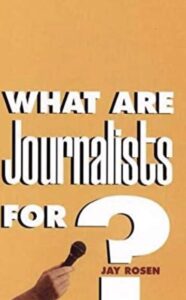
February 16, 2020 ‘The greatest need of our time is to clean out the enormous mass of mental and emotional rubbish that clutter our minds and makes of all political and social life a mass illness. Without this housecleaning we cannot begin to see. Unless we see, we cannot think. The purification must begin with the mass media. How?
-Thomas Merton, conjectures of a Guilty Bystander, 1968
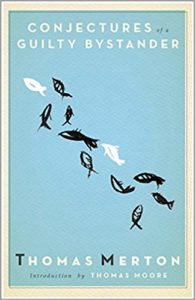
Jay Rosen, NYU:
I am waiting for the first newsroom that declares a state of emergency. Susan Glasser, staff writer at The New Yorker:
“Is this time any different from other episodes where he has ranted about his unchecked right to do unconstitutional things?” Read her reply:
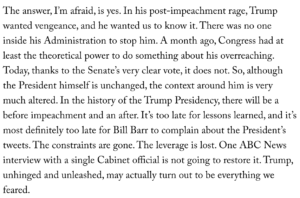
https://www.newyorker.com/news/letter-from-trumps-washington/donald-trump-a-president-so-unhinged-that-even-bill-barr-says-hes-out-of-control
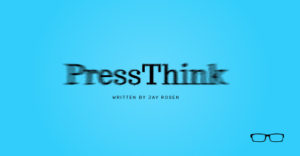
From Dr. Rosen in June, 2018:
It sometimes happens in diplomacy that one country has to say to another: “This is extreme. We cannot accept this. You have gone too far.” And so it suspends diplomatic relations.
In 2012 the government of Canada announced that it would suspend diplomatic relations with Iran. “Canada views the government of Iran as the most significant threat to global peace and security in the world today,” said the foreign minister.
Journalists charged with covering him should suspend normal relations with the presidency of Donald Trump, which is the most significant threat to an informed public in the United States today.
That is my recommendation.
I began making this point on the third day of his presidency, January 22, 2017, when I said the press should send interns to the White House briefing room. Normal practice would not be able to cope with the political style of Donald Trump, which incorporates a hate movementagainst journalists.
“Send the interns” means our major news organizations don’t have to cooperate with this. They don’t have to lend talent or prestige to it. They don’t have to be props. They need not televise the spectacle live (CNN didn’t carry Spicer’s rant) and they don’t have to send their top people. They can “switch” systems: from inside-out, where access to the White House starts the story engines, to outside-in, where the action begins on the rim, in the agencies, around the committees, with the people who are supposed to obey Trump but have doubts… The press has to become less predictable. It has to stop functioning as a hate object. This means giving something up.
So that’s one way to suspend normal relations: send the interns. On MSNBC June 12, Rachel Maddow described another. She said that frequent viewers of her show may have noticed a pattern:
I don’t go out of my way to play tape of the president speaking. Nor do I tend to spend too much time parsing whatever the latest quote is from him. That is not out of any animus on my part, it’s just that the president very frequently says things that aren’t true. He admits that he says things that aren’t true. He calls it, you know, hyperbole, but he lies. And I feel like on this show I’d like you to be able to trust me to give you true information. Because I generally feel like I can’t trust what purports to be information from this president, I just try to do the news without words from him, most of the time.
Normally, the president is quoted more than any other public figure, and clips of him speaking are ubiquitous in television news. Maddow told her viewers that she had suspended this practice because, more likely than not, the president’s words would only misinform them. Every president needs to be fact-checked. This one doesn’t care if what he says is true. That’s extreme, and it calls for a response.
The opposing proposition was stated well by Chris Wallace, of Fox News:
“Anything that a president would say — even if it was libelous or scandalous — it’s the president talking, and I think you report it,” said Chris Wallace, the “Fox News Sunday” host who moderated this year’s third presidential debate. “Under any definition, it’s news, whether it’s sensible or not, factual or not, productive or not.”
A middle-ground would be this: what the president says is neither automatically newsworthy nor automatically suspect. Rather, it has to be judged in context. Which sounds super-reasonable. Who can be against “context” and case-by-case judgment? But here’s the context: bad actor, cannot be given the benefit of the doubt, no matter what the case is.
“How,” asked Chuck Todd on Meet the Press June 17, “can we believe a president who routinely says things that are provably false?” Instead of treating these questions as unsolvable riddles, Chuck Todd could… suspend normal relations. For Meet the Press, that might mean: don’t accept as guests the people the White House sends out as defenders of the provably false (especially Kellyanne Conway.) If Trump himself is willing to sit down with Chuck Todd, fine. Take him on over his many falsehoods. But no surrogates or fog machines unless they are willing to correct the president.
The American press corps is not like the government of Canada, which can speak with a single voice. Thousands of people working for hundreds of newsrooms cannot change their practices in synch with one another. But they can all decide, “This is extreme. We cannot accept this. This has gone too far.” And then make a break with normal practice.
For the Washington Post it might be declining to participate in so-called background briefings. For NPR, it might be refusing to report false claims by the President unless they are served as a “truth sandwich,” a suggestion recently made by Brian Stelter and Margaret Sullivan, interpreting the work of George Lakoff. For CNN, never going live to a Trump event — on the grounds that you will inevitably broadcast falsehoods if you do — would be a good start.
Suspend normal relations. It’s up to the journalists who cover Trump to decide how they will do it. The important thing is that they do it. And then announce what they did, to get others thinking about their own steps. In this way the sovereign state of journalism can take action, and show, as the Canadian prime minister said recently, that it will “not be pushed around.”
It’s time for the press to suspend normal relations with the Trump presidency
Marianne Williamson:
“Suffragettes agreed with the Abolitionists: We need to deal with the greatest evil first.”
December 18, 2019

The Media Today
“Both sides”
As impeachment has progressed, attacks on the “both sides” approach—and the Times, in particular—have intensified. Over the weekend, critics trained their ire on an article in the paper, headlined “The Breach Widens as Congress Nears a Partisan Impeachment,” about a debate in the Judiciary Committee. Nate Silver, of FiveThirtyEight, noted that the actual words “both sides” appeared four times in the piece. (One of these was in a quotation.)
As impeachment has progressed, attacks on the “both sides” approach—and the Times, in particular—have intensified. Over the weekend, critics trained their ire on an article in the paper, headlined “The Breach Widens as Congress Nears a Partisan Impeachment,” about a debate in the Judiciary Committee. Nate Silver, of FiveThirtyEight, noted that the actual words “both sides” appeared four times in the piece. (One of these was in a quotation.) Jay Rosen, a journalism professor at NYU, listed 12 more snippets from the article as evidence of the Times’s inability to handle what he calls “asymmetrical polarization.” They included “the different impeachment realities that the two parties are living in,” “both sides engaged in a kind of mutually assured destruction,” and “the two parties could not even agree on a basic set of facts in front of them.”
Rosen is right that this sort of language is inadequate: Democrats, for the most part, are engaging with the factual record; Republicans, for the most part, are not. These positions are manifestly not equivalent. Treating them as such does not serve any useful concept of fairness; instead, it rebounds clearly to the advantage of the one side (Republicans) for whom nonsense being taken seriously is a victory in itself. The Times is far from the only culprit. The structure of some TV news shows, in particular, has bothsidesism hardwired into it: a Democrat and a Republican are given equal time to make their unequal impeachment cases, and both face hard questions, to contrive a sense of balance. The questions lobbed at Democrats are often fair, but often pale into triviality when a Republican follows them on and starts sowing conspiracy theories.
When it comes to much impeachment coverage, bothsidesism isn’t the beginning and end of the problem, but part of our broader reflex to frame contentious political stories around the concept of partisanship. In parts of the press, a set of party-oriented impeachment narratives has taken hold that contains some truth, but also rests on a selective interpretation of available evidence. Entrenched partisanship—in Congress and the country—is real, and newsworthy, as is the role that our fragmented information ecosystem has played in stoking and reinforcing division. And yet it does not follow, as some journalists and pundits seem to have surmised, that impeachment has been a waste of time. At the beginning of his show yesterday, Todd said the “national response” to impeachment has been “whatever.” And yet, as I wrote earlier this month, support for impeaching DT, while recently static, is historically high. (A Fox News poll out yesterday reinforced that finding.) Six Republicans in Michigan are not the country.
The media’s job, done properly, is multidirectional: it holds power to account, and communicates matters of public interest to news consumers. On impeachment, too much coverage seems to have got stuck in a feedback loop: we’re telling the public that politicians aren’t budging from their partisan siloes, and vice versa, with the facts of what Trump actually did getting lost somewhere in the cycle. The cult of “both sides” is integral to this dynamic, and it’s serving the impeachment story poorly. Now, more than ever, our top duty should be to fight for the truth.
https://www.cjr.org/the_media_today/both-sides-impeachment-trump.php
The Breach Widens as Congress Nears a Partisan Impeachment
Fleeting efforts at persuasion by members of the Judiciary Committee gave way to disputes over basic facts during a marathon debate over articles of impeachment.
October 9, 2019 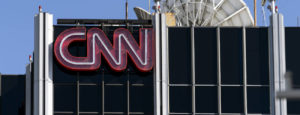
LOS ANGELES, CA, UNITED STATES – 2019/02/06: The CNN logo is seen atop its bureau in Los Angeles, California. (Photo by Ronen Tivony/SOPA Images/LightRocket via Getty Images)
Jay Rosen:
“What if the hosts threw their shows over to the beat reporters more often? What if guests who lied weren’t brought on again? What if people who had worked on campaigns couldn’t be brought on to spin the news unmitigated?”
[Jay Rosen is a media critic and journalism professor Studio 20 program at NYU.]

CNN public editor: What actually is CNN?
WHEN I THINK OF CNN—when I watch it, or when I scroll through Twitter, or when I think of what I want to write about it—I think of what Jeff Zucker, CNN president, said in 2017: “The idea that politics is sport is undeniable, and we understood it and approached it that way.”
The contrast now is stark. It’s not that the CNN beat reporters are good and hosts are bad—many of the latter are accomplished journalists, too. It’s just that what is mostly reflected on the screen—especially during prime time—seems to be less news reporting, more punditry, more round tables, more horse race politics, more talking heads, more interviews and interviewees yelling at each other, more that makes the news more confusing for the viewer (or at least for this viewer).
I find myself wrestling with this tension when I write these columns. I know I’m not the only one: Bernie Sanders’ campaign manager, Faiz Shakir went on Brian Stelter’s Reliable Sources and expressed frustration that the networks were more focused on politics than on policy, and that, on TV news shows, “it tends to be a game”. (Stelter, to his credit, acknowledged that many viewers agree, and that “the shiny object, the sensationalism, it’s a problem.”)
https://www.cjr.org/public_editor/cnn-coverage-reporting.php







